A radio helps touch hearts and minds in the Lake Chad region
Radio Ndarason, created in 2015, is a platform aimed at promoting a local peace discourse for all those affected by the current crisis in the Lake Chad region.
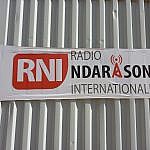
Every day, RNI is on air for 24 hours, broadcasting on 6 FM frequencies in Chad – N’Djamena, Liwa, Baga Sola, Bol, Ngouri and Doum Doum (and soon Mao). For 6 hours a day, RNI covers the entire Lake Chad region and beyond on shortwave – 3 hours in the morning and 3 hours in the evening respectively. The content is produced in the N’Djamena and Maiduguri studios and sourced from a network of correspondents across the four countries of the Lake Chad basin.
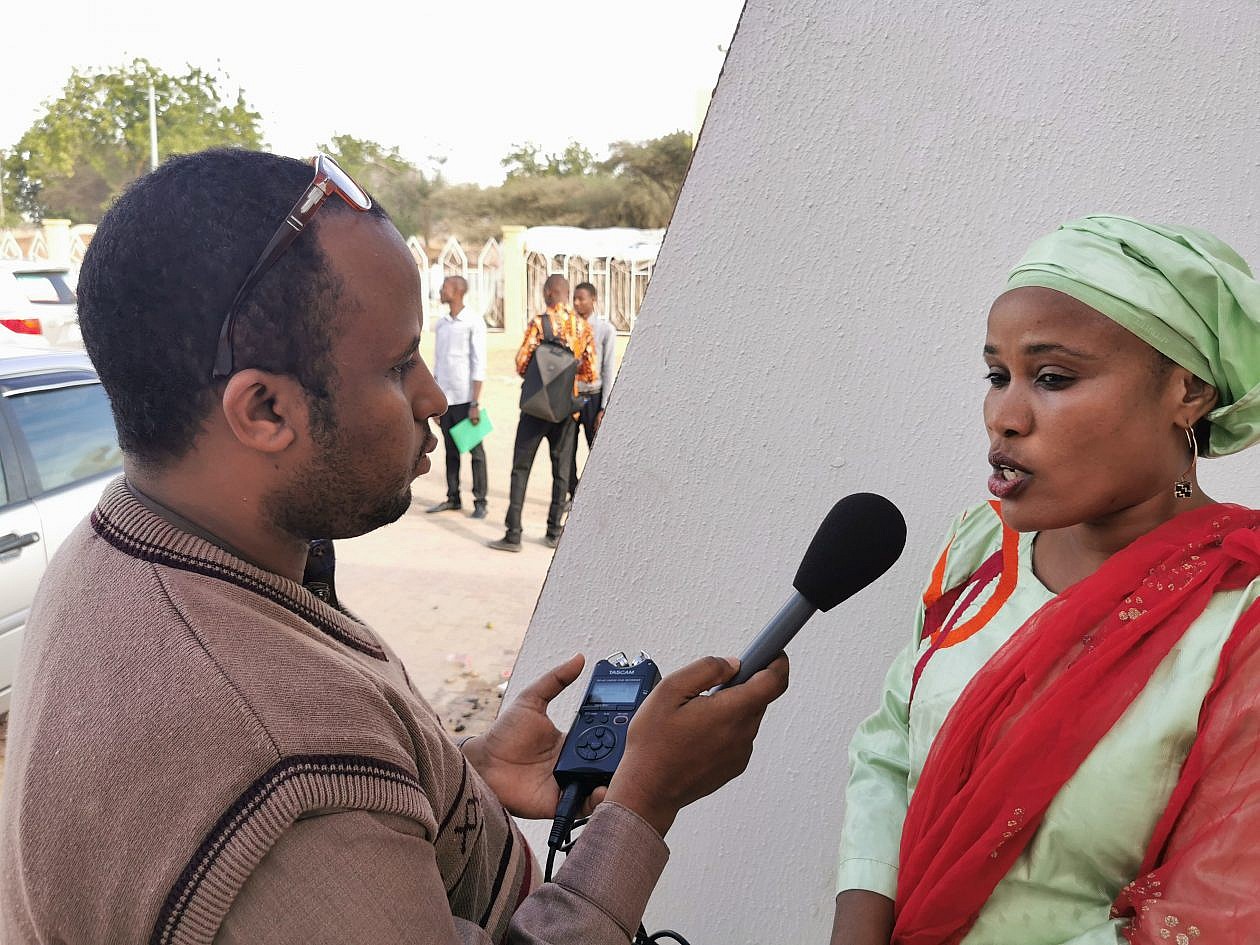
We learn more about this pioneering radio station In this interview with David Smith, the initiator of the Radio Ndarason project and Executive Director of Okapi Consulting.
What role does Radio Ndarason International (RNI) play in building peace in the Lake Chad region?
RNI is a platform for virtual dialogue. Lake Chad and the Great Sahel are places with an oral tradition, which is why radio works very well there. People have been talking and discussing to resolve problems for centuries. Radio allows the people of Lake Chad to communicate with each other in their own language. It is with their local expertise that we will identify the best way out of the crisis that has been plaguing the Lake Chad region for years.
Radio is very powerful and very crucial in this region; it allows us to touch people’ hearts and minds. With RNI, it is the first time that local languages are broadcast on the airwaves all around Lake Chad. It is a very powerful tool to deliver messages and discuss with the people around the lake region. To reach people and deal with issues they will understand, communication has to be oral because there are neither books nor newspapers. Radio is the only way to address issues, to be understood and to elicit a response from our listeners.
How do you handle the topics covered in RNI programmes?
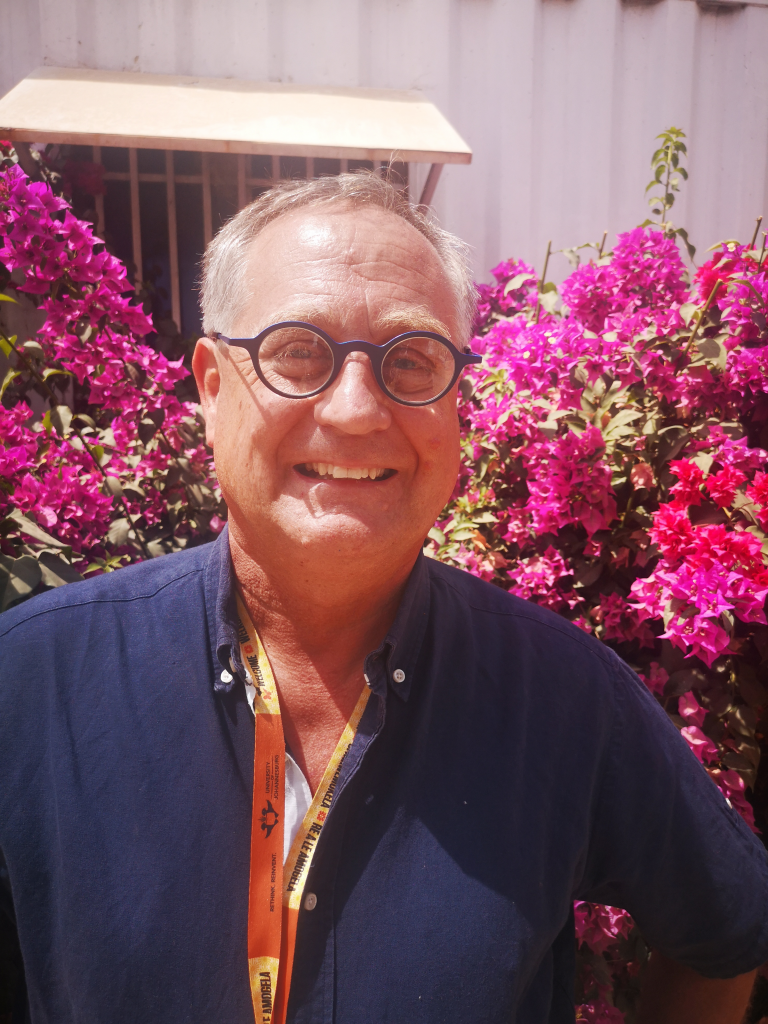
We operate on the principle that there is often more than one answer to a question. We have launched programmes with what is called alternative-constructive discourse. For example, if Boko Haram uses verses from the Koran to justify violent acts, we invite experts on radio, including experts on Islam, to understand the verses, or even hadiths, in a peaceful way.
But life in the Lake region does not revolve exclusively around topics related to violence. We broadcast a lot of content on development, agriculture, fishing, livestock,… How can farmers and herders live together? How important is education? In the region, illiteracy rates are among the highest in the world. Getting information through the radio is a reality.
Traditional radios are the most widely used in the Lake Chad region. Not everyone has a radio, but everyone has access to a radio! A young herder who has never seen a city has access to a small analogue radio that has AM, FM and shortwave. This young person knows exactly when Ndarason broadcasts in his language or when the BBC service broadcasts in Hausa…
What approach does RNI use to target the issues that interest its listeners?
Our radio has correspondents all over the region, we try to be as close as possible to our listeners. We have freelancers in just about every major village, from Zinder in Niger to Chibab in Nigeria, to Bagassola in Chad…
Even in the depths of Lake Chad, a large proportion of our listeners have mobile phones and participate in daily “open line” broadcasts. Several times a day our hosts ask questions to find out what topics our listeners are interested in and interact via phone or social networks. We talk to a targeted audience in the Lake Chad region, we address their concerns, and this is what makes the difference with other international radios or with local radios that reach a very small target.
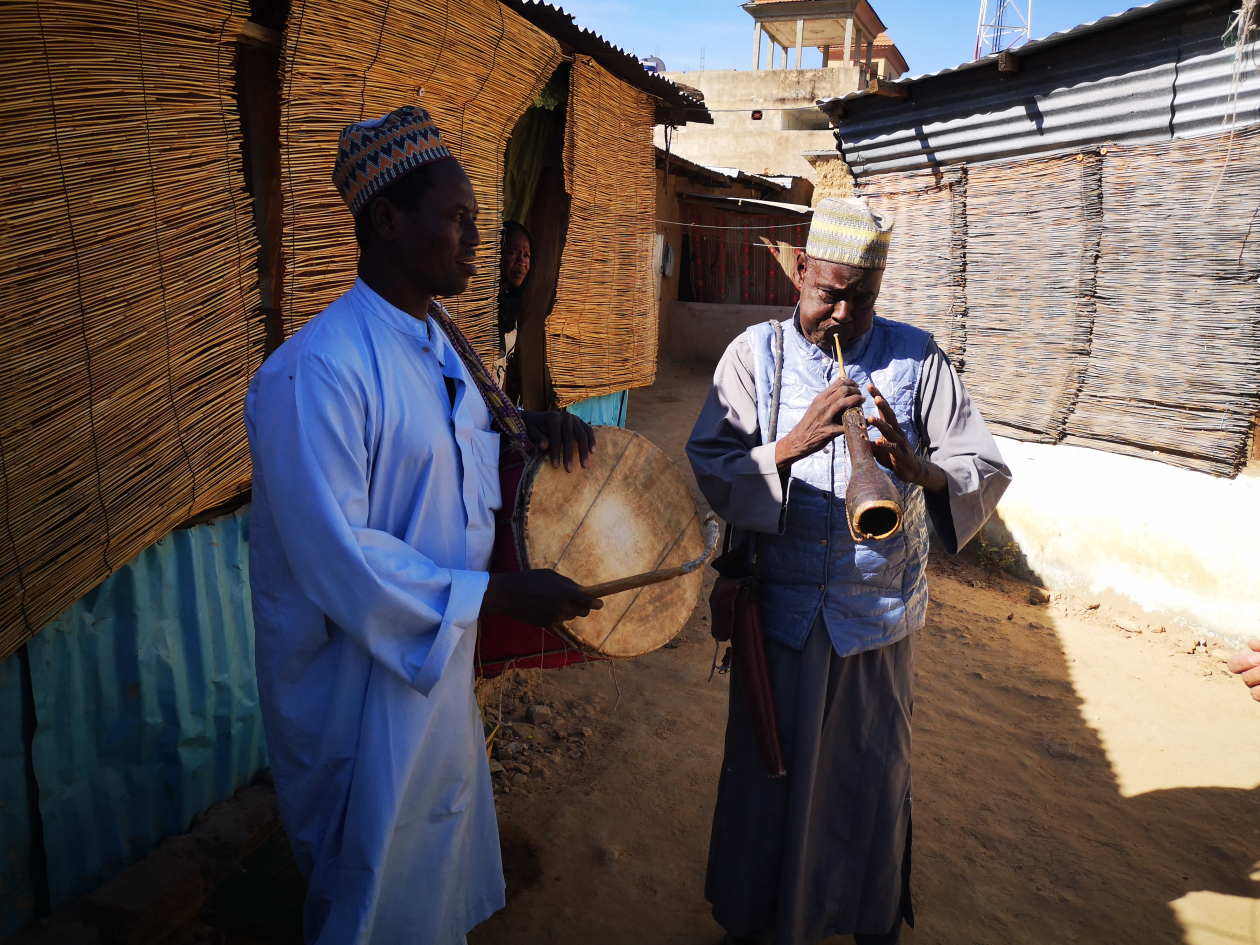
Most of the listeners who call in to the radio station ask questions about how to improve their lives, “How do I get my fish to market, how do I get a better harvest?” There are also questions about governance, about strengthening state services in this remote area.
In a meeting with Boudouma villagers on one of the islands in Lake Chad (an area shared by 4 countries), we asked them what they would like the state to do for them. They replied, “We want papers, we want to be part of a state because until now we don’t know which country we belong to!” And without papers, there is no access to state services. By creating bridges between the Bourouma of Lake Chad, the authorities and local stakeholders via the radio, we can bring to light problems that did not enjoy much visibility and find solutions. That is the magic of radio. We often have representatives of local authorities who come to the radio to speak, to answer questions from our listeners.
Who are RNI’s main audiences? What is the place of women?
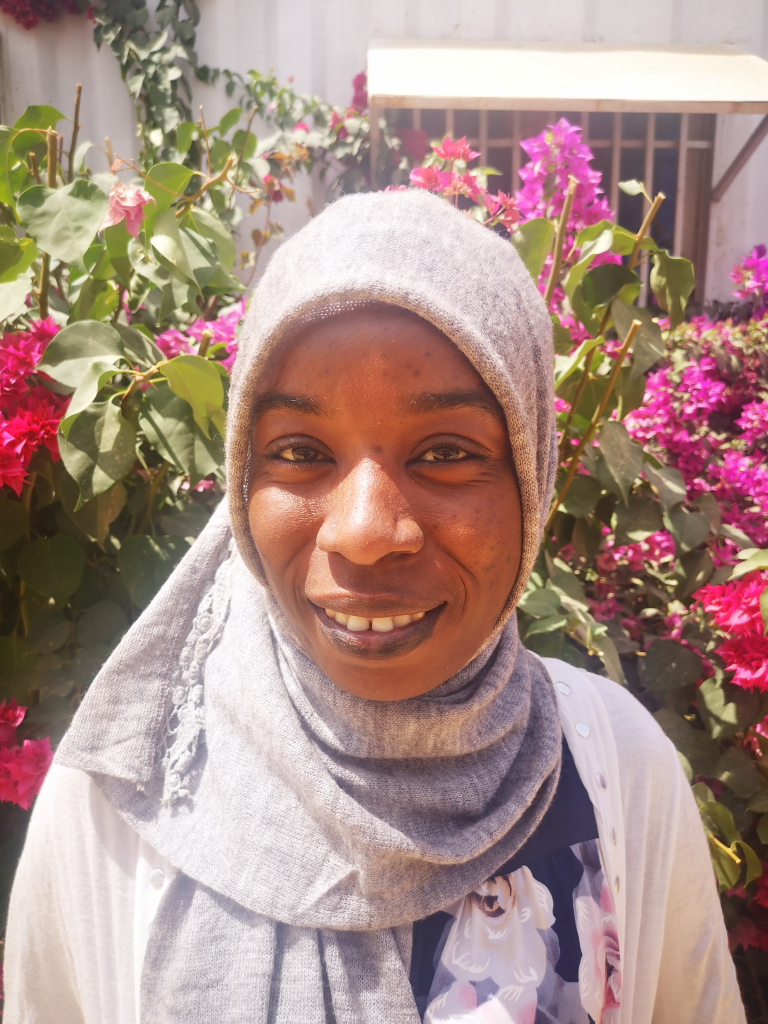
We have 7.5 million daily listeners. Most of the listeners are in Nigeria, as it is the most densely populated country in the Lake Chad region. There are ten million people who live in the area around the Lake. We can therefore conclude that the vast majority of the population listens to us!
The Lake Chad region is very conservative and the radios are in the hands of men. Women in this region unfortunately often have a second-class position. In general, they listen to the radio where the men are. We have a lot of programmes that target women, and if the host is not a woman, our female listeners are going to be worried and feel embarrassed. But if it is a woman speaking, the discomfort disappears. Much of what do is aimed at strengthening the position of women in the Lake Chad region.
Within the RNI team, our policy is parity. Often we find women who are very capable of working in radio, but their fathers, husbands or even sons may forbid them to work in radio. Fortunately we often manage to convince families to let these women work, they then come to understand that what their mother, their wife, their sister is doing is useful to help the development of their country, and even their family.
If we want development in Lake Chad, we need to look far ahead, to strengthen projects like this radio station over a long period of time, so that changes can take hold in people’s minds.
How do your teams deal with security issues in the field?
We work in a crisis zone, there will always be problems and risks, otherwise we would not be here! We do our best to minimise the risks, but there will always be some.
For infrastructure, our studios are located in N’Djamena and Maiduguri in secure areas. Our partnership with the Lake Chad Commissions allows us to house our studios wherever there is a joint force headquarters. But Radio Ndarason is not a military radio. The military provides us with a space inside their base for protection and logistical purposes. One of the RNI journalists once told me, “In the Lake region, when you are a farmer, fisherman, unemployed or journalist, you are a person at risk. We want to be part of the solution rather than the problem. The results are much better if we try to do something!” I have never seen a journalist on this continent refuse to cover a subject because he or she was afraid, and that is true for women too.
What are RNI’s other challenges?
The biggest challenge is to ensure the availability of funds to keep the radio on the air. This is my most important daily task. Fortunately we have donors who believe in us, who like what we do. But it is always a challenge. Without funding, there is no radio. Obviously, donors are not going to fund a project like this for ever.
With 7.5 million daily listeners and with the project we want to build around Lake Chad, we have the opportunity to run a radio station with programmes sponsored by humanitarian agencies, to have advertisements by companies in the region… We share the same ambition of helping the populations of Lake Chad turn the page on violence and build development.
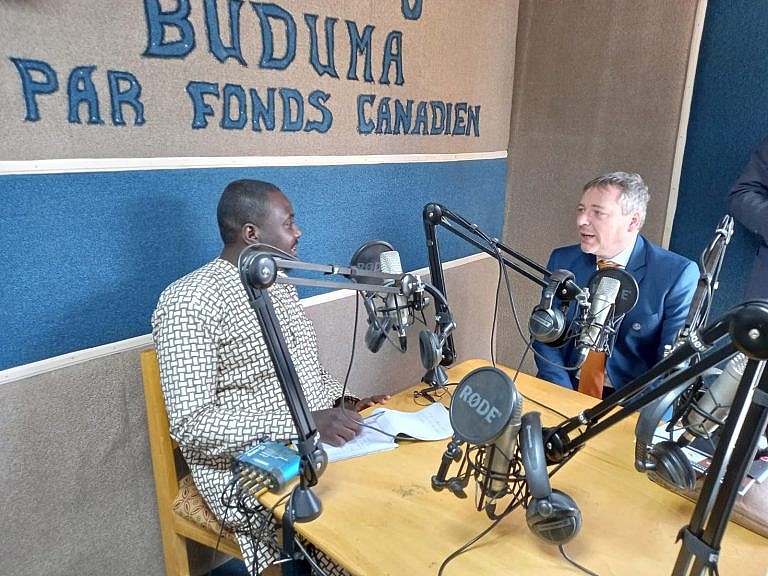
What role do young people play in the radio?
The population in the Lake Chad region is very young. It is a very broad-based population pyramid. We operate like a public radio station for the region. The most important factor in reaching young people is the language, the programmes in the local language. Furthermore, our journalists are very young. We recruited them because they were willing to learn and wanted to do something for their region, we know they are trained. Our journalists come from this region and they know our listeners intimately and deeply.
We also have programmes targeted at young people because they are hosted by young people who are invited into the studio: we create programmes for young people made by young people every week. This has never been done before in the region. RNI is a pioneering radio. A radio for young people, by young people.
Discover the website of Radio Ndarason Internationale
Radio Ndarason is one of the projects labelled Sahel Alliance, and has received financial support from several members of the Sahel Alliance (France, UNDP, Canada, Netherlands, Switzerland, etc.).
Go further

